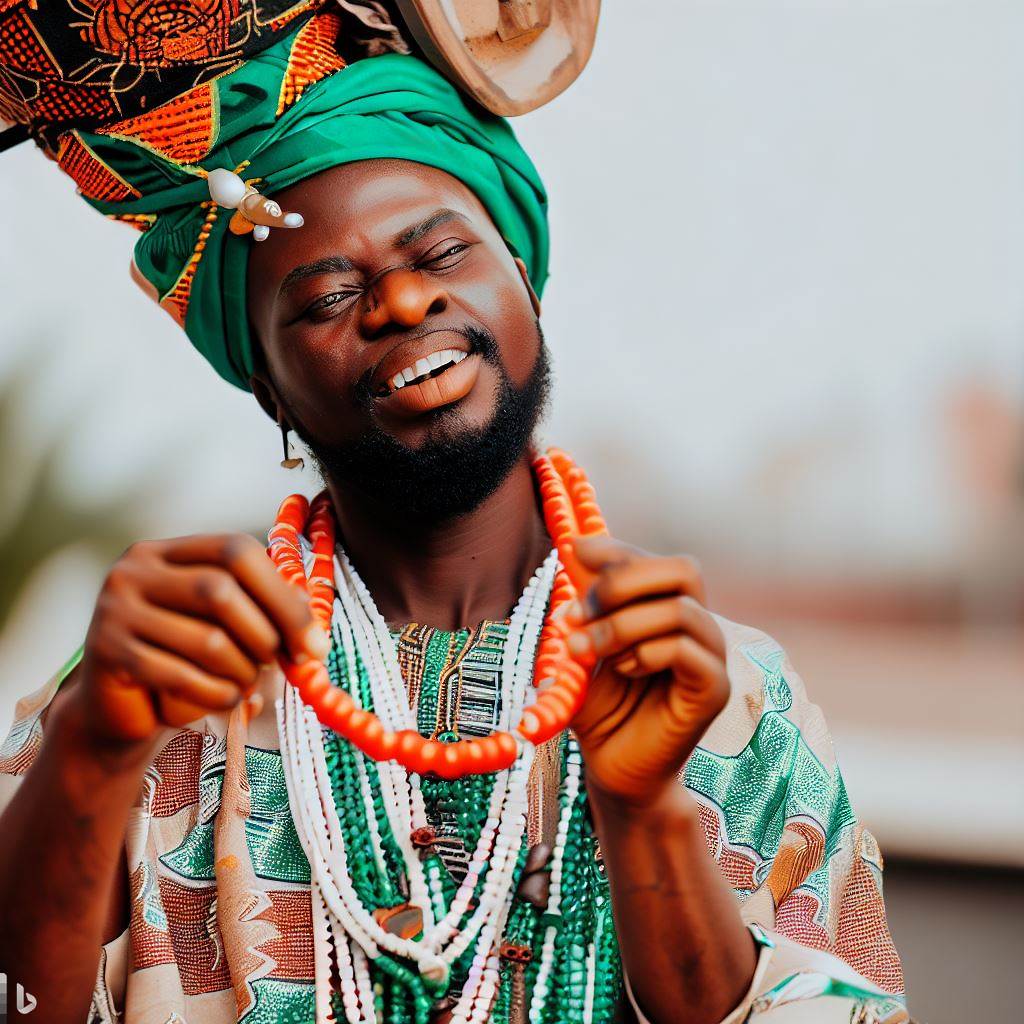Introduction
Nigerian culture is a rich and diverse tapestry that reflects the country’s history, traditions, and values.
It encompasses various ethnic groups, languages, beliefs, and customs.
Understanding the cultural influences on public relations (PR) practices in Nigeria is crucial.
PR is a strategic communication process that builds mutually beneficial relationships between organizations and their publics.
Cultural influences impact how messages are perceived, interpreted, and received by different target audiences.
Nigerian cultural norms, such as respect for authority figures and emphasis on community, significantly shape PR strategies.
Communicating effectively in Nigeria requires acknowledging and respecting local customs, traditions, and languages.
Public relations practitioners must be sensitive to cultural nuances and adapt their approaches accordingly.
Failing to understand and appreciate Nigerian culture can lead to misinterpretations, misunderstandings, and PR failures.
Furthermore, cultural awareness allows PR professionals to tailor messages, symbols, and channels
to effectively engage with local communities and establish trust.
In Nigerian culture, face-to-face interactions, storytelling, and group discussions hold significant value.
These cultural practices have implications for interpersonal communication, media relations, and online engagement.
Nigerian cultural values, such as hospitality and respect for elders, also influence crisis management
and reputation-building efforts in the PR industry.
By considering cultural influences, PR practitioners can enhance their effectiveness and success in Nigeria.
Historical Context of Nigerian Culture
A. Influences from indigenous tribes
- Traditional values and beliefs shape Nigerian culture.
- Cultural practices and rituals hold significant importance in Nigerian society.
B. Colonial and post-colonial influences
- The English language was introduced during the colonial period.
- Western practices were adopted, blending with traditional Nigerian customs.
- Nigerians strive to preserve their traditional values alongside embracing foreign influences.
Nigerian culture weaves a rich tapestry, shaped by historical influences that underpin its distinct PR practices. Recognizing this historical context is pivotal for grasping the roots of Nigerian PR.
Indigenous tribal impacts are foundational, deeply embedding traditional values and beliefs in society.
These values stress respect, community, and relationship significance in PR.
Cultural rituals notably mold Nigerian ceremonies, impacting PR strategies.
Colonial and post-colonial periods deeply marked both culture and PR.
British arrival introduced English as a vital PR tool, enabling effective inter-tribe communication.
While Western practices merged with tradition, a distinct Nigerian PR style emerged.
Despite foreign influences, preserving traditional PR values is paramount. Nigerians uphold their heritage while embracing global PR trends, showcasing cultural pride.
In summary, Nigeria’s historical backdrop notably molds PR practices. Indigenous values, cultural practices, and colonial impacts form the PR bedrock.
This awareness is key for effective PR in Nigeria, facilitating adept navigation of cultural intricacies and diverse communication.
Nigerian Cultural Elements in PR Practices
A. Communication style and language
- Importance of local languages: Incorporating local languages in PR materials enhances cultural relevance.
- Cultural nuances in verbal and non-verbal communication: Understanding gestures, tone, and context is crucial for effective communication.
B. Traditional values and ethics
- Collectivism and community-oriented mindset: Nigerian PR practices emphasize communal support and collaboration.
- Respect for hierarchy and authority: Acknowledging authority figures and paying homage is integral to Nigerian PR.
- Importance of personal relationships: Building trust and forming personal connections are vital in Nigerian PR.
C. Festivals and ceremonies
- Utilizing cultural events for PR campaigns: Leveraging traditional festivals and ceremonies helps connect with the target audience.
- Building connections through participation in cultural celebrations: Involvement in cultural activities strengthens PR relationships and fosters goodwill.
Read: Effective PR Strategies in the Nigerian Market
Impact of Nigerian Cultural Influences on PR Campaigns
Nigerian culture has a significant influence on public relations (PR) practices in the country.
PR campaigns in Nigeria must consider the cultural nuances and traditional values of the Nigerian audience to effectively connect and resonate with them.
A. Building trust and credibility
1. Aligning messages with cultural beliefs and values
Incorporating cultural beliefs and values into PR messages is crucial in gaining the trust and credibility of the Nigerian audience.
By aligning messages with their cultural perspectives, PR campaigns can establish a sense of relatability and show an understanding of their unique experiences.
2. Establishing authenticity by incorporating cultural elements
Including cultural elements in PR campaigns establishes authenticity and promotes stronger connections with the Nigerian audience.
By incorporating traditional customs, languages, and symbols, PR practitioners can create a sense of familiarity and relatability, which enhances the credibility and effectiveness of their campaigns.
B. Navigating cultural sensitivities
1. Respecting religious and traditional taboos
Nigeria is a diverse country with various religious beliefs and traditional practices.
PR campaigns must be respectful and sensitive to these religious and traditional taboos, avoiding any content that may offend or disrespect them.
Understanding and respecting these sensitivities contribute to building positive relationships with the Nigerian audience.
2. Avoiding stereotypes and misrepresentations
PR campaigns in Nigeria should steer clear of stereotypes and misrepresentations that perpetuate negative or inaccurate images of the Nigerian people and culture.
Instead, campaigns should aim to portray a diverse and multifaceted image that accurately reflects the realities and richness of Nigerian culture.
C. Targeting and segmenting Nigerian audience effectively
1. Understanding diverse cultural groups and preferences
Nigeria is home to various cultural groups, each with its own unique customs, languages, and preferences.
To effectively target and engage the Nigerian audience, PR practitioners must invest time and effort in understanding the intricacies of these cultural groups.
This understanding allows for tailored campaigns that resonate with specific segments of the Nigerian population.
2. Adapting PR strategies based on cultural factors
Cultural factors, such as language, region, and traditions, greatly influence the reception and impact of PR campaigns.
By adapting PR strategies to accommodate these cultural factors, practitioners can ensure their messages are well-received and effectively understood by the Nigerian audience.
This adaptability increases the chances of campaign success and positively impacts the overall perception of brands and organizations.
Essentially, Nigerian culture plays a crucial role in shaping PR practices and campaigns in the country.
Understanding and incorporating cultural beliefs and values, navigating cultural sensitivities, and effectively targeting the diverse Nigerian audience are key components of successful PR campaigns in Nigeria.
By respecting and authentically embracing Nigerian culture, PR practitioners can build trust, credibility, and lasting connections with the Nigerian audience.
Read: Understanding PR Ethics in the Nigerian Context

Successful PR Campaigns Influenced by Nigerian Culture
A. Case studies of international brands embracing Nigerian cultural elements
- Coca-Cola’s “Share a Coke” campaign, incorporating Nigerian names on their product labels.
- Nike’s collaboration with Nigerian fashion designer, Folake Coker, to create a collection inspired by Nigerian traditional attire.
- Guinness’ “Made of More” campaign showcasing Nigerian individuals who have made significant contributions to society.
- Google’s “Google Cultural Institute” initiative, featuring Nigerian art, music, and cultural heritage in their online exhibitions.
- Airbnb’s “Live There” campaign, promoting Nigerian homes and experiences as a unique way to explore the country.
B. Examples of local organizations using cultural authenticity for brand positioning
- Dangote Group’s PR campaign highlighting their commitment to preserving Nigerian cultural values and traditions.
- MTN Nigeria’s “Everywhere You Go” campaign, showcasing the diversity of Nigerian culture and promoting national unity.
- Oando PLC’s partnership with local artists and musicians to promote Nigerian cultural festivals and events.
- Jumia Nigeria’s “Naija Style Fridays” campaign, celebrating Nigerian fashion, music, and cultural trends.
- GTBank’s sponsorship of cultural events and initiatives aimed at promoting Nigerian arts, literature, and fashion.
The Influence of Nigerian Culture on PR Practices is vividly demonstrated through case studies and examples where both international brands and local entities have seamlessly integrated Nigerian cultural elements into their campaigns.
This integration not only fosters a genuine connection with the target audience but also elevates brand image, positioning the brands as culturally authentic.
These successful PR endeavors encompass incorporating Nigerian names on product labels, collaborating with local designers, featuring indigenous art and music, and commemorating traditional festivals.
This taps into the rich cultural heritage of Nigerians, fostering loyalty, positive consumer sentiment, and market expansion.
Nigerian culture’s plethora of inspiring narratives, dynamic traditions, and artistic expressions offers immense potential for impactful PR campaigns.
By comprehending and respecting the cultural intricacies of Nigerians, brands can forge deep emotional bonds and resonate profoundly with their audience.
Furthermore, the infusion of Nigerian cultural elements not only cultivates brand allegiance but also advances cultural understanding.
It facilitates cross-cultural learning, breaking stereotypes, and nurturing empathy and respect.
In fact, Nigerian culture’s impact on PR is incontrovertible.
Successful campaigns seamlessly incorporate Nigerian cultural elements, showcasing the potency of cultural integration in fostering connections, brand loyalty, and global cultural exchange.
This cultural synergy stands as a prized asset in PR, shaping the industry’s landscape for years to come.
Read: Case Study: Successful PR Campaigns in Nigeria
Challenges in Integrating Nigerian Culture in PR Practices
In order to effectively incorporate Nigerian culture into PR practices, several challenges must be addressed.
These challenges include:
A. Balancing tradition with modernity
- Respecting traditional cultural values while embracing modern PR techniques.
- Ensuring PR messages align with Nigeria’s cultural norms and expectations.
- Striking a delicate balance between preserving heritage and embracing progress.
- Adapting traditional communication styles to suit modern digital platforms.
B. Addressing cultural diversity within Nigeria
- Recognizing the vast cultural diversity across Nigeria’s 250 ethnic groups.
- Developing PR strategies that are inclusive and resonate with various cultural identities.
- Understanding differences in language, customs, and traditions regionally.
- Creating campaigns that celebrate Nigeria’s diversity and foster unity.
C. Adapting PR strategies to changing cultural dynamics
- Keeping up with evolving cultural dynamics driven by globalization and urbanization.
- Staying abreast of shifts in attitudes, values, beliefs, and popular culture trends.
- Aligning PR campaigns with emerging cultural movements and societal changes.
- Being responsive to the influence of popular culture and entertainment on public perceptions.
In short, while incorporating Nigerian culture into PR practices presents challenges, it also offers immense opportunities to build stronger connections and enhance communication effectiveness.
By striking a balance between tradition and modernity, addressing cultural diversity, and adapting to changing cultural dynamics, PR professionals can navigate these challenges and create impactful campaigns that resonate with Nigerian audiences.
Ultimately, integrating Nigerian culture in PR practices is essential for establishing meaningful relationships, promoting cultural pride, and fostering long-term success in the dynamic Nigerian market.
Read: Challenges Faced by PR Specialists in Nigeria
Conclusion
Recap of the influence of Nigerian culture on PR practices
Throughout this blog post, we explored the significant influence of Nigerian culture on PR practices.
We discussed how cultural values, traditions, and communication styles shape the way public relations is conducted in Nigeria.
From the significance of respect for hierarchy to the emphasis on community and storytelling, these cultural elements play a pivotal role in shaping PR strategies and messaging.
Importance of cultural understanding for effective PR campaigns
Understanding Nigerian culture is essential for running effective PR campaigns in the country.
A deep comprehension of the cultural nuances allows PR practitioners to tailor their strategies to resonate with the target audience.
By incorporating cultural elements into PR campaigns, organizations can establish trust, build relationships, and effectively communicate their messages.
In the end, Nigerian culture has a profound impact on PR practices. Recognizing and respecting this influence is crucial for successful PR campaigns in Nigeria.
By adapting strategies to align with cultural values, PR professionals can navigate the complexities of this diverse country and achieve their communication goals.
Cultural understanding is the key to unlocking the full potential of PR in Nigeria.




